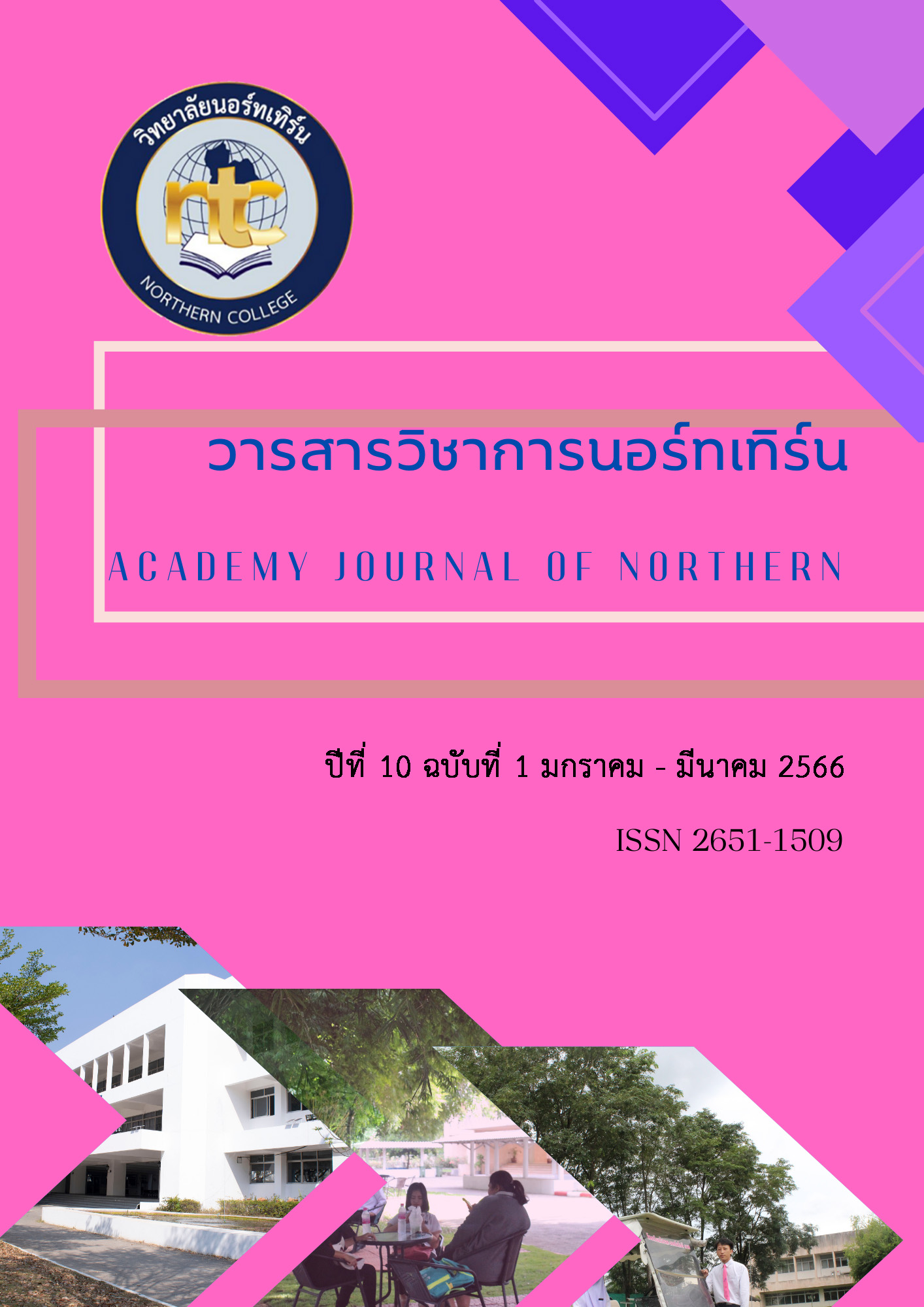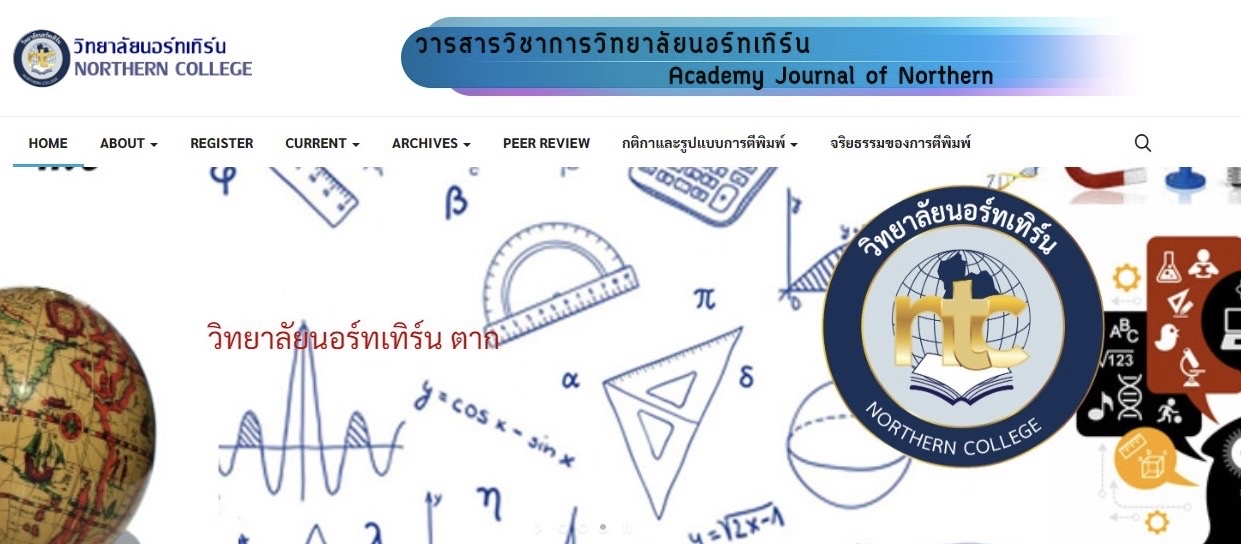The Creative Tourism for learning the Intangible Cultural Heritage. Local Community Network of Mae Ramat District, TAK
Keywords:
tourist attraction, cultural heritage, community network, networkingAbstract
The Creative Tourism for learning the Intangible Cultural Heritage. Local Communty Network of Mae Ramat District, TAK. The objecties of this research are 1) to create network of community researchers to develop cultural heritage in community in Mae Ramad district, Tak province 2) to study the linkage between community cultural knowledges to be developed as tourism base by community researcher network, 3) to design and develop tourism route for learning cultural heritage of the communit and 4) to develop and evaluate effectiveness of management and services using mixed method both in qualitive and quantitative data. To emphasize cooperation , community - based research was employed using interview , observation , taking photo and voice recorder. The target groups are network party, head of community , local scholars in Kanejue , Mae ramad and prathat subdistrict , Mae ramad district , Tak province. The statistics used are mean,percentage and standard deviation with descriptive research. The findings shown that 1) Building community research network through seminars and group discussion comprised of 6 villages in subdistricts. The community representatives (head of commuity, scholars, villagers) worked closely with supporting networks (community development, community administration , agricultural bank , tourist police and Tak community college). The replacement of personel was done initially. The researcher applied community-based research to trigger the development within the community to impressed the visitors. 2) studying the linkage between cultural heritage of communities ; well preserved natural capital and cultural capital, Mynmar social capital ,World War 2 historical capital and trade route from Mae ramad to Tak district and Lampun province. These could foundation to create activities and tourist attraction in Mae ramad. 3) Designing and developing tourism routes to learn cultural heritage of community was acheived by exposing communities represen tatives with study trip and sharing with expertise. " warm homestay of peaceful two lands" operated by tourism commitee of the networking 6 communities of 3 subdistricts to welcome visitors. 4) Developing and evaluating effdctiveness of torism management was conducted in poster and infographic presented to internal and external networks. The materials was promoted via word of mouth, facebook page and social media to attract visitors. As a result, the local shops and learning center could sell more products. The local liaisons were trained on effective story-telling technique. More training to bd provided to be professional.
References
คีรีบูน จงวุฒิเวศย์ และคณะ. (2557). การพัฒนารูปแบบกิจกรรมการเรียนรู้ตลอดชีวิตแบบมีส่วนร่วมกับชุมชนโดยใช้พิพิธภัณฑ์และแหล่งเรียนรู้ในท้องถิ่นเพื่อส่งเสริมการเรียนรู้เชิงสร้างสรรค์. กรุงเทพฯ : มหาวิทยาลัยศิลปากร.
จิรานุช โสภา และคณะ. (2561). การพัฒนาวิสาหกิจชุมชนสนับสนุนการท่องเที่ยวเชิงสร้างสรรค์เพื่อเรียนรู้เกี่ยวกับ ภูมิปัญญาอาหารท้องถิ่นในกลุ่มเมืองมรดกโลกทางวัฒนธรรม (สุโขทัย ศรีสัชนาลัยและกำแพงเพชร, พระนครศรีอยุธยา). กรุงเทพฯ : มหาวิทยาลัยสวนดุสิต.
ชุลีรัตน์ จันทร์เชื้อ และคณะ. (2557). การพัฒนาเครือข่ายการท่องเที่ยวโดยชุมชนเพื่อการเรียนรู้มรดกวัฒนธรรม. พิษณุโลก : มหาวิทยาลัยราชภัฏพิบูลสงคราม.
บุญเลิศ จิตตั้งวัฒนา. (2548). การพัฒนาการท่องเที่ยวแบบยั่งยืน. กรุงเทพฯ : เพรสแอนด์ ดีไซน์.
ภราเดช พยัฆวิเชียร. (2547). รายงานประเมินผลโครงการพัฒนาเครือข่ายการท่องเที่ยว โดยชุมชนเพื่อการท่องเที่ยวที่ยั่งยืน. กรุงเทพฯ : สำนักพัฒนาการท่องเที่ยว กระทรวงท่องเที่ยวและกีฬา.
วรรณพร ตุลยาพร. (2554). การพัฒนามัคคุเทศก์อาชีวศึกษาโดยใช้แหล่งเรียนรู้และภูมิปัญญาในท้องถิ่น. กรุงเทพฯ : วิทยาลัยบริหารธุรกิจและการท่องเที่ยวกรุงเทพ.
ศศิวรรณ ทัศนเอี่ยม และคณะ. (2559). กระบวนการจัดการเรียนรู้เพื่อป้องกันโรคพยาธิใบไม้ตับโดยการมีส่วนร่วมระหว่างชุมชนกับภาคีเครือข่ายในเขตบ้านนาอ่างและบ้านอ่างคำ ตำบลนาตาล อำเภอเต่างอย จังหวัดสกลนคร. กรุงเทพฯ : สำนักงานคณะกรรมการส่งเสริมวิทยาศาสตร์ วิจัยและนวัตกรรม.
แสงเงิน ไกรนรา. (2550). กระบวนการทุนทางสังคมที่เกี่ยวข้องกับการพัฒนาเครือข่ายทอผ้า : กรณีศึกษา เครือข่ายทอผ้า ตำบลส้มป่อย อำเภอจตุรัส จังหวัดชัยภูมิ. กรุงเทพฯ : มหาวิทยาลัยธรรมศาสตร์.
สัญญา พานิชยเวช และคณะ. (2560). การศึกษาพัฒนาการเมืองสวรรคโลกและมรดกวัฒนธรรมชุมชนสู่การพัฒนาการท่องเที่ยวเชิงสร้างสรรค์ โดยเครือข่ายชุมชนคนสวรรคโลก จังหวัดสุโขทัย. กรุงเทพฯ : สำนักงานกองทุนสนับสนุนการวิจัย.
อนุชาติ พวงสำลี และวีรบูรณ์ วิสารทสกุล. (2541). ประชาสังคม : คำ ความคิด และความหมาย. กรุงเทพฯ : สถาบันชุมชนท้องถิ่นพัฒนา
Downloads
Published
How to Cite
Issue
Section
License
Copyright (c) 2023 Academy Journal of Northern

This work is licensed under a Creative Commons Attribution-NonCommercial-NoDerivatives 4.0 International License.







